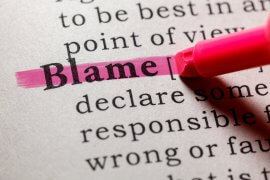
Image credit: Arisa Chattasa on Unsplash
“What can I do to relieve the stress of Infertility?”
It is the question that I am asked most often and my answer has evolved over the years based on my personal and professional experience.
My answer is that Infertility is like a boxing match. It consists of mostly hundreds of tiny jabs that leave you unbalanced and hyper-alert until sometimes a big punch comes along that knocks you on your butt. These jabs consist of stressors and disappointments during diagnosis and treatment that can wear you down, decrease your resistance and have a cumulative effect on your mental health.
Your insurance won’t pay for a test or treatment. Jab. Your medication order is delayed. Jab. You have to tell your boss that you will be late for work (yet again) due to an office visit. Jab. You didn’t make enough eggs to go to an IVF retrieval and my cycle is cancelled. Jab…Jab.
Over time, even the most well-balanced people can feel anxious and like they are ‘up against the ropes’.
Mentally, infertility is not so much a disease as a state of dis-ease, and I don’t think anyone emerges from an infertility journey the same way they entered it. One can’t go around infertility, you have to go through the diagnosis and treatment(s) anyway, so I would reframe the above question as: Can the infertility journey itself be an opportunity for personal growth? Is there a gift in this crisis, such as a chance to develop and cultivate inner strength that can help us deal with other challenges in life and be the person we want to be most often?
Not only is the diagnosis of infertility upsetting, but the process itself often generates complex and difficult feelings in us, some of which we may not have experienced at this level before. As humans, we rely on the principle of having agency, that is the knowledge that our choices can lead to a certain outcome, that what we do matters. So, if we study hard, we do well on a test. If we work out regularly, we experience gains in muscle and cardiovascular fitness. Infertility doesn’t behave and adhere to this concept. A woman can follow her treatment plan perfectly and not achieve a pregnancy that cycle. Over time, one can imagine that this causes feelings of hopelessness, helplessness, and a lack of control, and many of us are ill-equipped to handle these difficult emotions. So we feel stressed and anxious and our self-confidence can suffer.
I think it’s important to remember that the brain and body’s default response to a perceived threat is to activate the stress response (fight, flight or freeze), and this response is appropriate and necessary, as the brain must constantly scan for perceived danger in order to protect us from it. It is when we stay in this activated state, either because we don’t realize there are other options or because we don’t have the skills or tools to manage it, that we can suffer emotionally.
So, what can we do? Here are some of my thoughts:
- Words matter. Precisely identify and label what you are feeling. To say that you are feeling ‘stressed’ or ‘anxious’ is not only too broad but how do we ‘fix’ stress or anxiety? If we knew how to do this, we would have already. Saying that you feel ‘lonely’ or ‘overwhelmed’, though, is helpful and actionable because we can identify strategies that help us connect or find calm, respectively, and employ those when needed (see below). If you find yourself in fight, flight or freeze, and can’t precisely identify a specific emotion, then just say to yourself that you are “activated” and thank your brain (I’m serious) for its help. Think of your brain as a highly-trained watchdog, on high-alert for perceived threats that can put you in danger. By acknowledging that you are in this state and thanking the brain for this coping mechanism, you are effectively telling your brain that you are safe; patting the watchdog on the head (so to speak) and giving it permission to engage the part of the nervous system that’s responsible for relaxation and recovery.
- Make a Nourishment Menu. This is an activity that I do with all of my health coaching clients very early on in our sessions. It involves writing down activities, thoughts, or behaviors that help you feel a certain way, and sorting them into columns under the feeling that they are trying to create. For example, if they want to feel calm, they can: listen to music, go outside in nature, go for a walk or talk to a trusted friend. If they want to feel empowered (this is a big one for women TTC) they can: work on setting and maintaining personal boundaries, complete a small task like cleaning or organizing an area, listen to a certain playlist, or lift weights/do a powerful yoga pose.
- Realize that even though you can’t control your environment or outcome, you still have choices. In response to a challenge or stressor, you can make a choice to avoid feeling a certain difficult emotion (anger, shame, resentment) or you can chose a behavior that leads you toward your (previously-identified) core values. This is the premise of ACT (Acceptance and Commitment Theory) and making a personal ACT Matrix has been incredibly helpful for many of my clients. Although I can’t describe it fully here (it will be the topic of a future blog post) it’s important to note that as long as you are mindful and intentional, your choice (whatever it is) is the appropriate one at the time. For example, you might feel fragile or the stressor feels acute and you need immediate relief from pain, so you cry or get angry (away behaviors), and that’s ok. You might, in a certain circumstance, want to work on your boundaries, assertiveness, or diffuse a situation with humor (toward behaviors) and that is perfect for you at that time. The important point is acknowledging that in every situation, you still have choices. Since a lack of agency is a core component of many of the negative emotions associated with infertility and its treatments, then restoring it in this way can increase self-esteem and a sense of empowerment. We don’t try to suppress these uncomfortable feelings (such as pain or anger) because that never works, so this exercise helps us realize that we are ok and can co-exist with them. This is a weird concept for most of us but, with practice, can really help. For many, it can be the difference between helplessness and hope. For more information on the ACT Matrix, go to TheActMatrixAcademy.com.
I’d like to end by talking about pain. None of these strategies are meant to downplay the pain that many feel when experiencing infertility. It is both chronic and acute and can feel unrelenting. But as painful as it can feel, it can’t harm us and can actually be a powerful tool. In my own life, I found that a difficult situation provided the push I needed to guide me in the pursuit of my best self.
I think the best description of this concept of pain is by author Glennon Doyle in her book Untamed. She writes: “I can feel everything and survive. Every time I thought I couldn’t take any more, I was wrong. I can also use pain to become a more beautiful version of myself again and again.”
Back to our original metaphor. Infertility can throw you lots of obstacles, many of which can feel incredibly painful, but these ‘jabs’ need not trap you in a reactive position. By realizing that not only can you handle pain and uncertainty, but you can actually grow in their presence, can generate feelings of power and preparedness during a journey that is often short on both.







